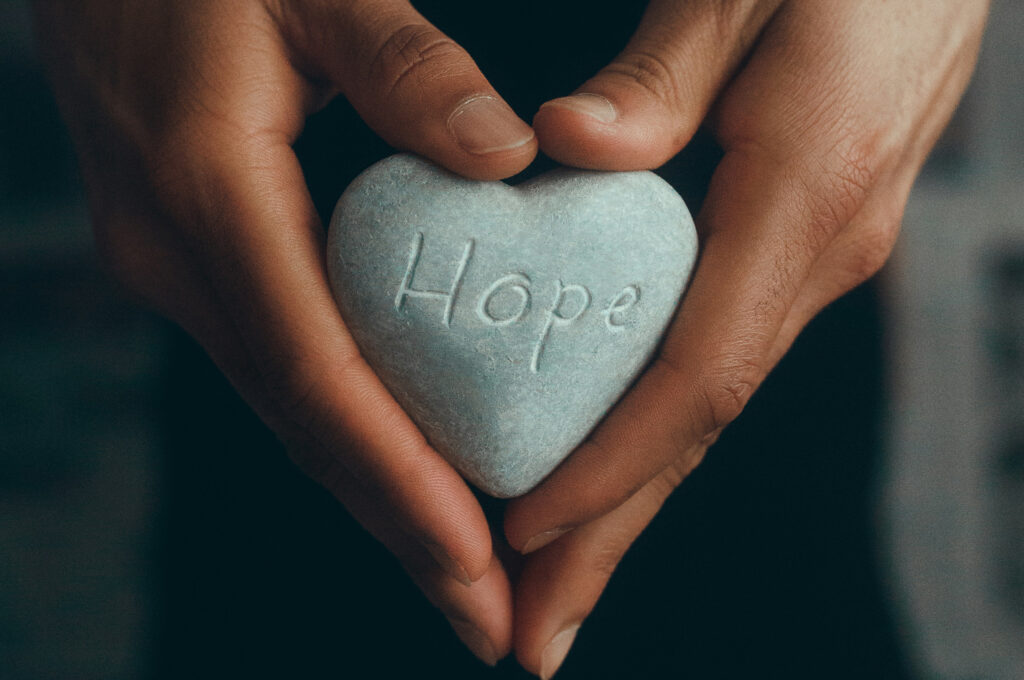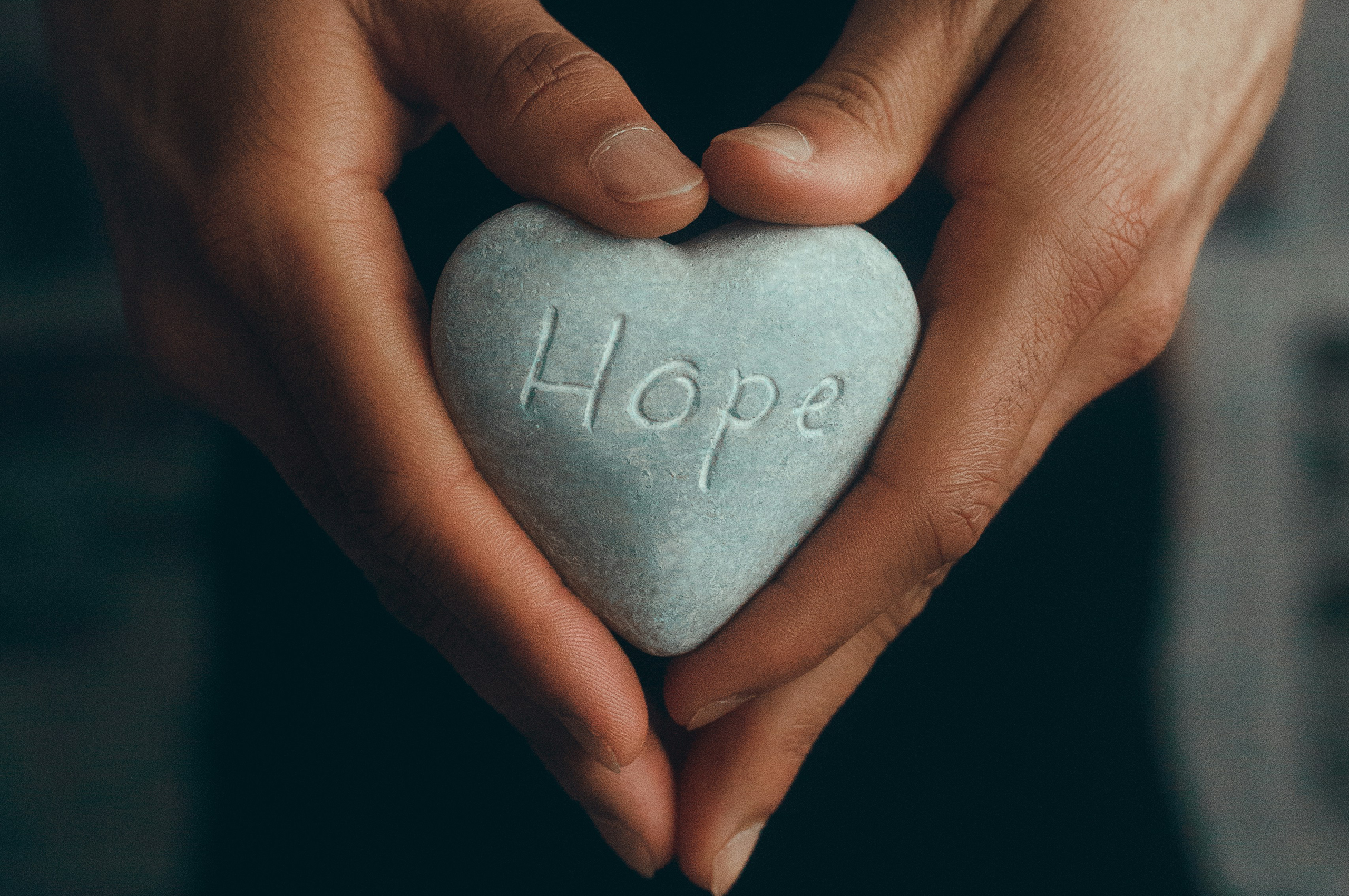
BUILDING THE FUTURE
Support our RE.BUILD projects with your donation
EVERY BLOCK WITH HEART
Our Mission
Creating new beginnings from rubble – recycling for reconstruction in crisis regions
How do you rebuild when everything is destroyed and resources are scarce? That’s the question civil engineer, social entrepreneur, and inventor Alfons asked himself. The result is a simple, universally adaptable construction innovation: turning debris into new building blocks – without heavy machinery or expensive materials. Thus, the RE.CK was born.
In collaboration with construction experts in Germany and crisis regions such as Syria, Gaza, and Ukraine, he works to process existing debris into durable blocks for rebuilding homes and infrastructure. As a binding agent, materials like ash, clay, or mud can be used alongside cement – all locally available resources.
RE.BUILD – with the people and for the people on the ground.
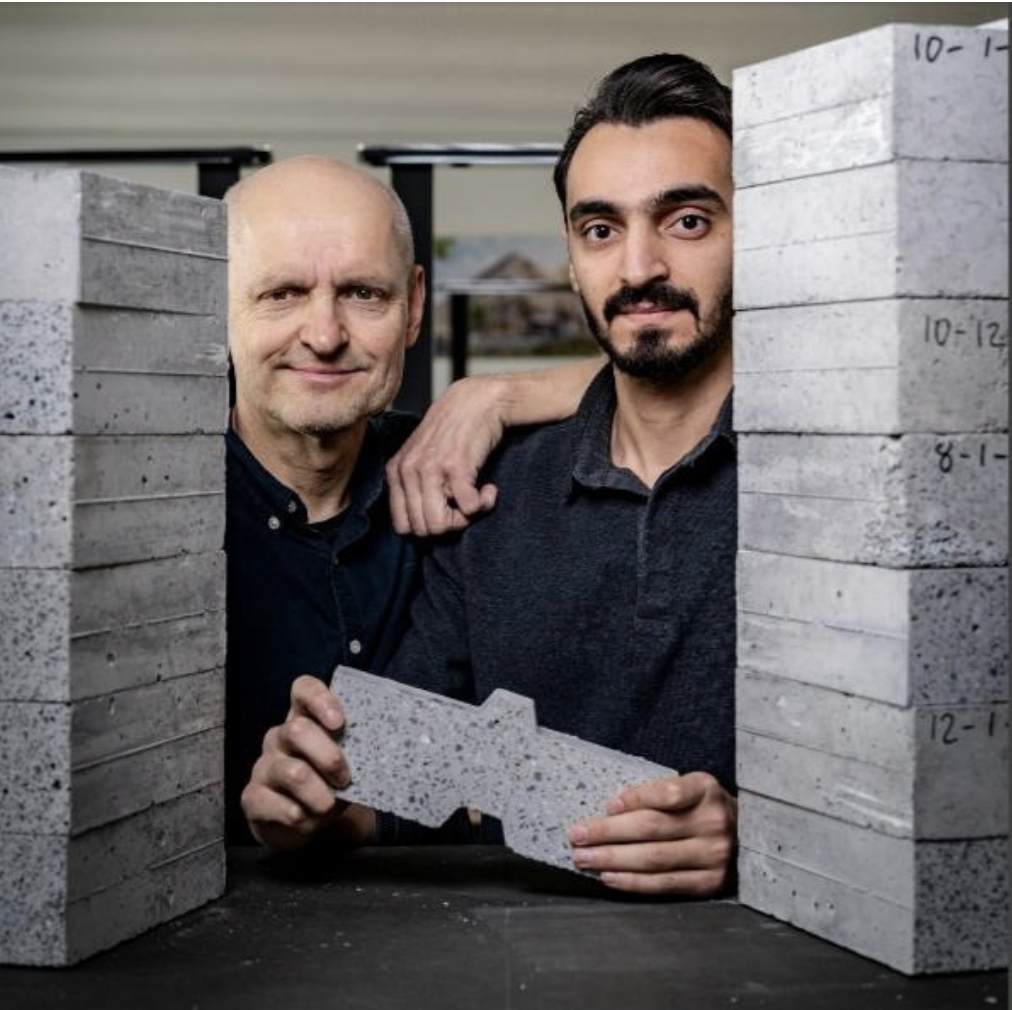
Alfons, inventor of the RE.CK, and draftsman Omar present the first RE.CK building blocks.
News
Building Blocks from Rubble – for Syria and Gaza
An interview with Alfons and Omar
by Heiko Wirtz-Walter, Deutschlandfunk, October 26, 2025
Transcript: Eleven Kilos of Hope
Eleven Kilos of Hope – Crushed rubble pressed into a single stone. With it, Omar wants to rebuild his destroyed homeland, Syria.
Omar: “I wanted to do something for my home country. There’s so much destruction — so much needs to be rebuilt.”
He came to Germany as a refugee in 2017, learned the language, and began an apprenticeship as a draftsman with Mainz-based architect Alfons.
Alfons: “I told him from the very beginning, Omar, one day we’ll go to Aleppo — that’s where he came from — one day we’ll go to Aleppo and rebuild it together.”
The architect got the bold idea after seeing images from war zones like Syria and Gaza. What drives him is the question: how can reconstruction work when all that’s left is rubble?
Alfons: “That’s how the idea came about — to develop a building block, a masonry stone that works entirely without cement, so there’s no need to rely on imports from outside Gaza for example. To replace sand and gravel completely with construction debris — one hundred percent — and to work only with materials available locally.”
The stone he developed together with a company from Thuringia is designed to be load-bearing, even without reinforced concrete. The individual blocks are simply stacked on top of each other. Using this method, houses up to four stories high could be built. Alfons also wants to create jobs on site.
Alfons: “It’s not just about someone coming in, building houses, and then telling two million people, ‘Here, move in.’ We have to take a different approach. We need something that allows the stones to be produced locally — and the people themselves to build their homes. With professional guidance, yes, but it’s absolutely possible because the system isn’t complicated. It’s a bit like Lego — you just stack the blocks.”
The first prototypes already exist, though they’re still in development. They’re working closely with experts and construction companies, including in Syria. In the coming months, they plan to use the new stones to build a model house there.
Omar: “Right now, one thing is very important — hope. And we see the situation slowly improving. Every idea helps Syria at this moment.”
The civil war has, for now, come to an end. Many people in the country feel safer. The next step: founding their own company in Syria to produce the new stones locally.
Drone flight over Aleppo, filmed by the Deutsche Welle team during Alfons and Omar’s second trip to Syria.
Second Journey to Aleppo, Syria
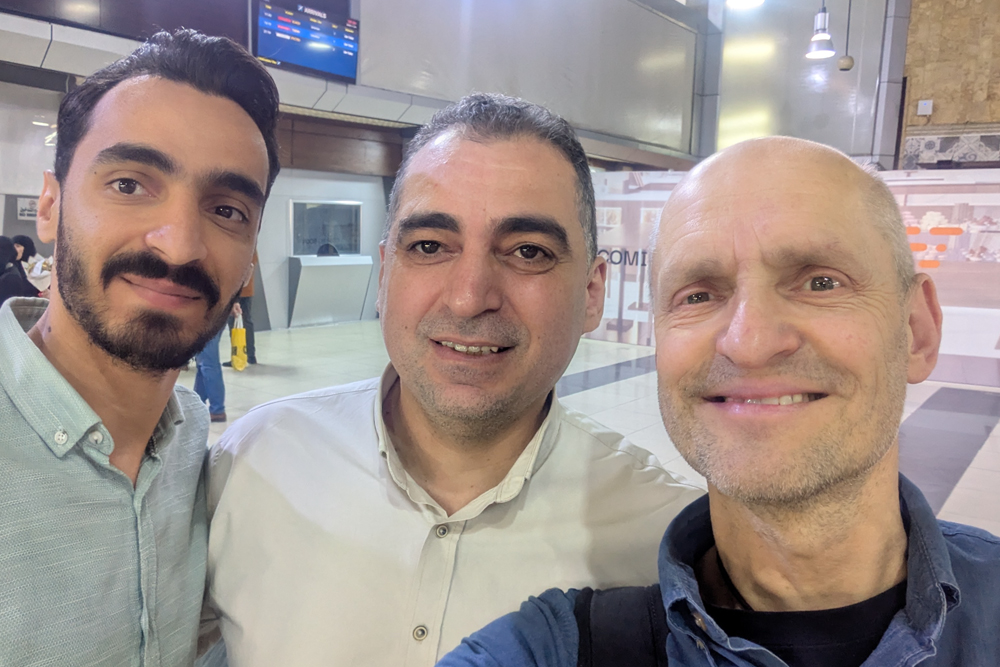
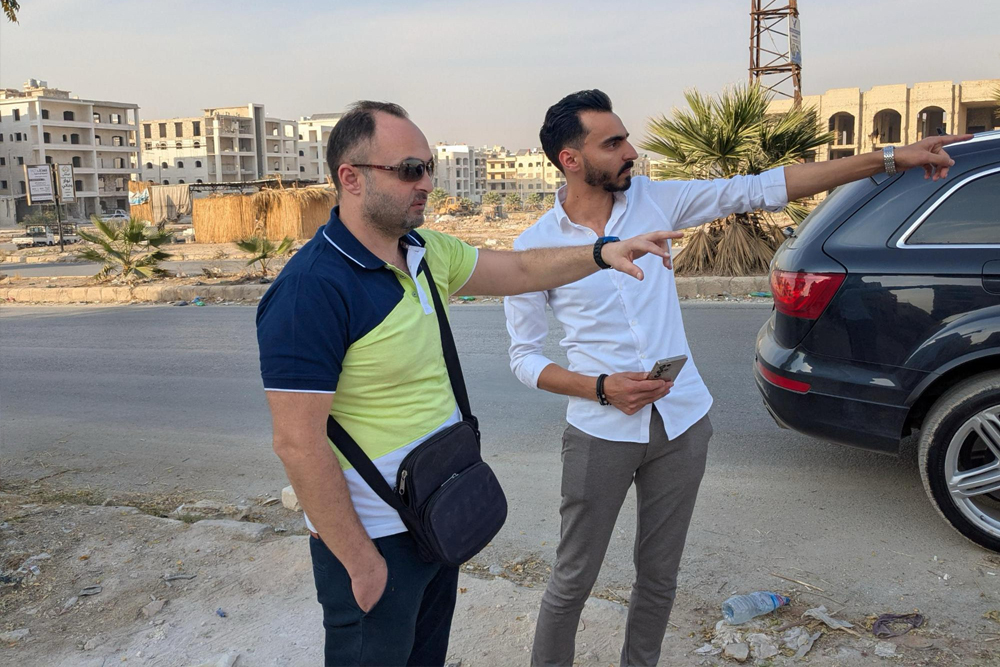
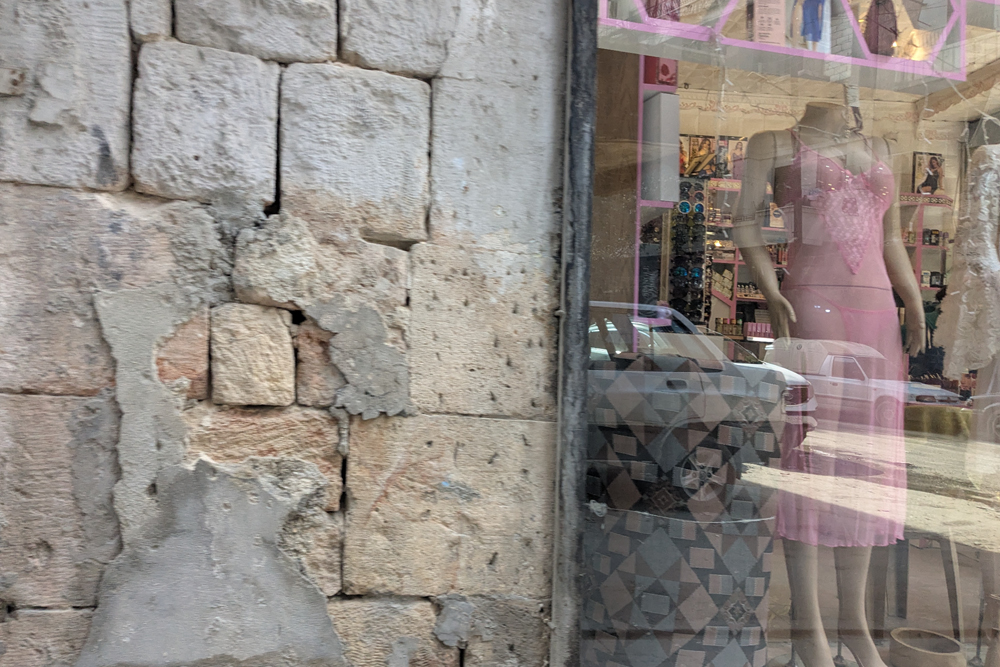
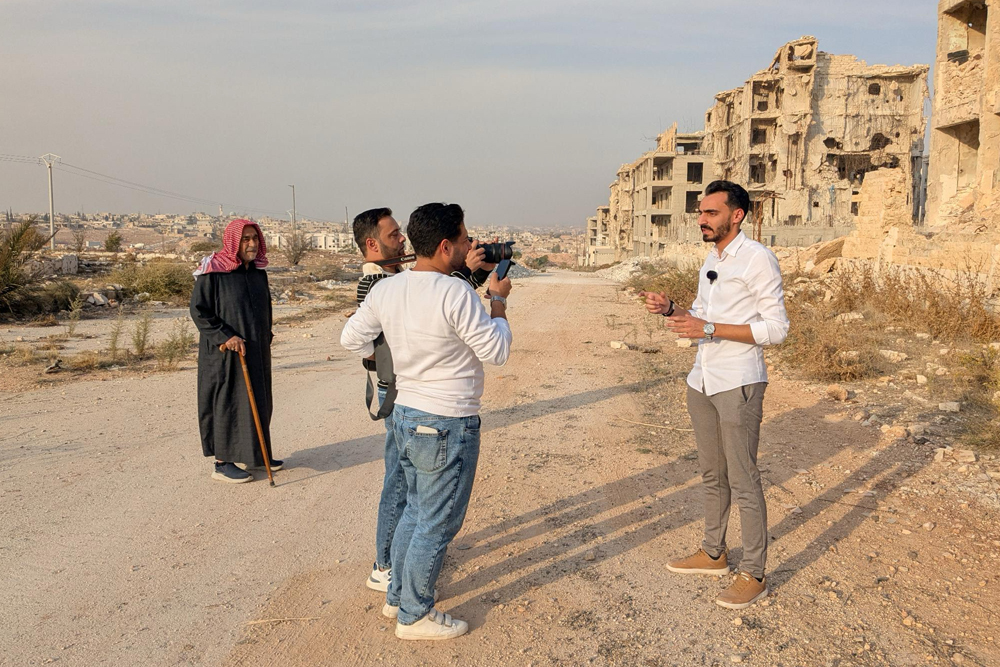
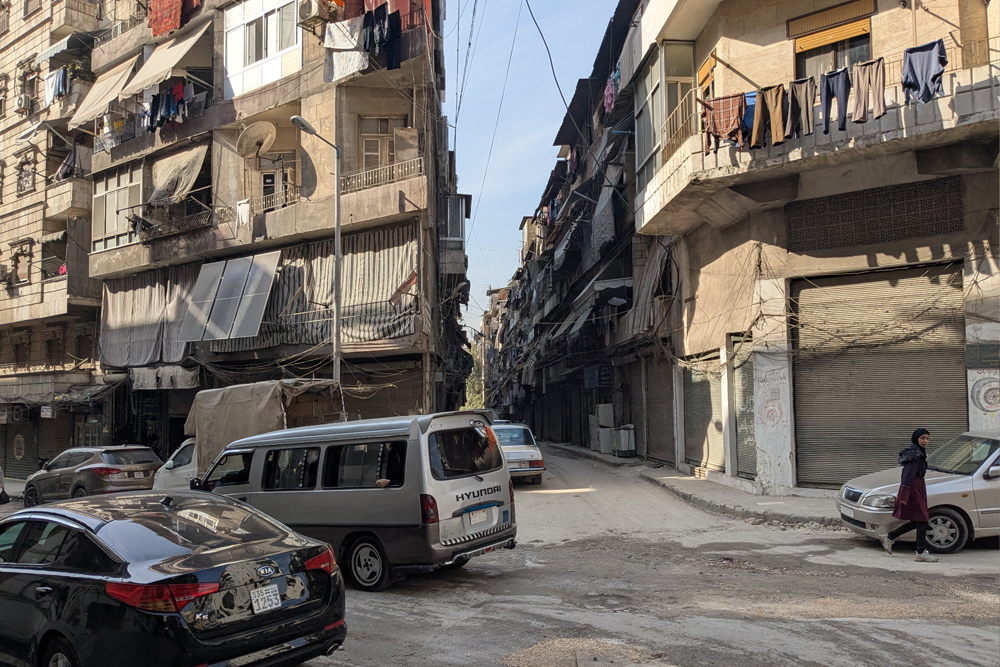
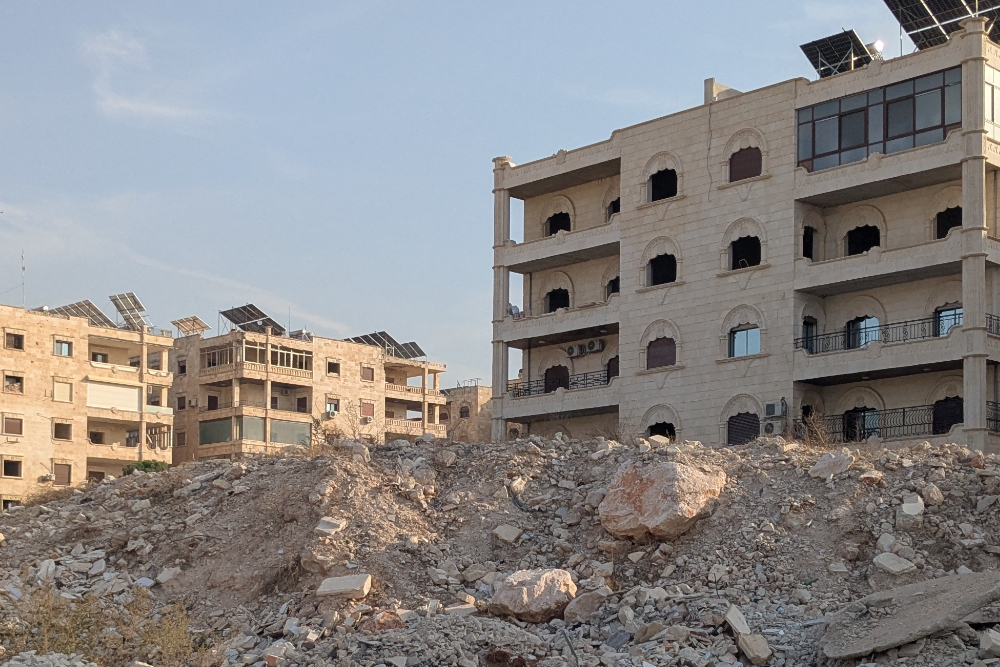
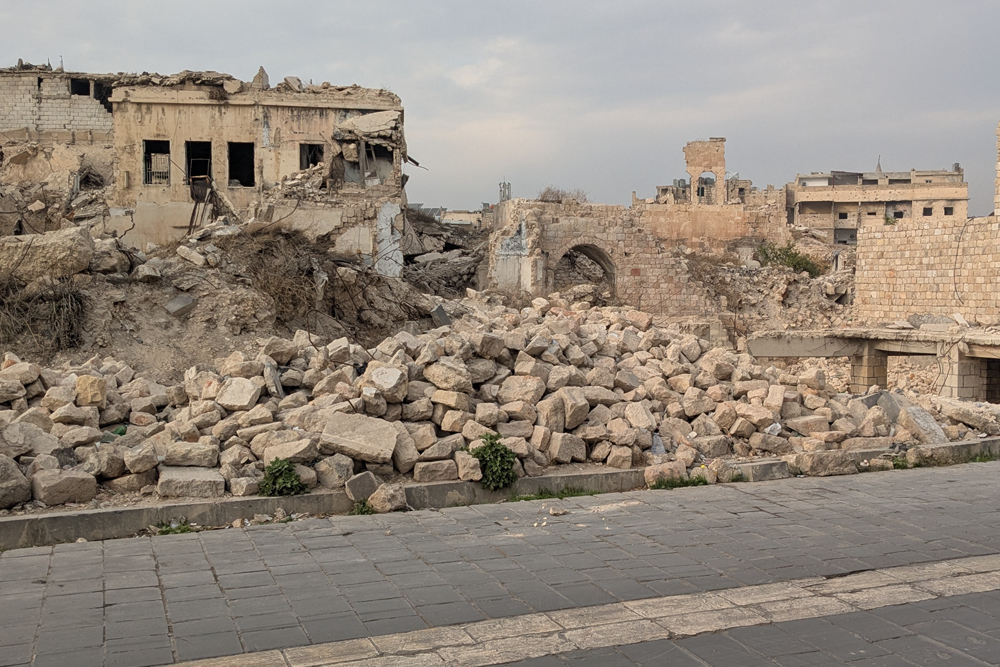
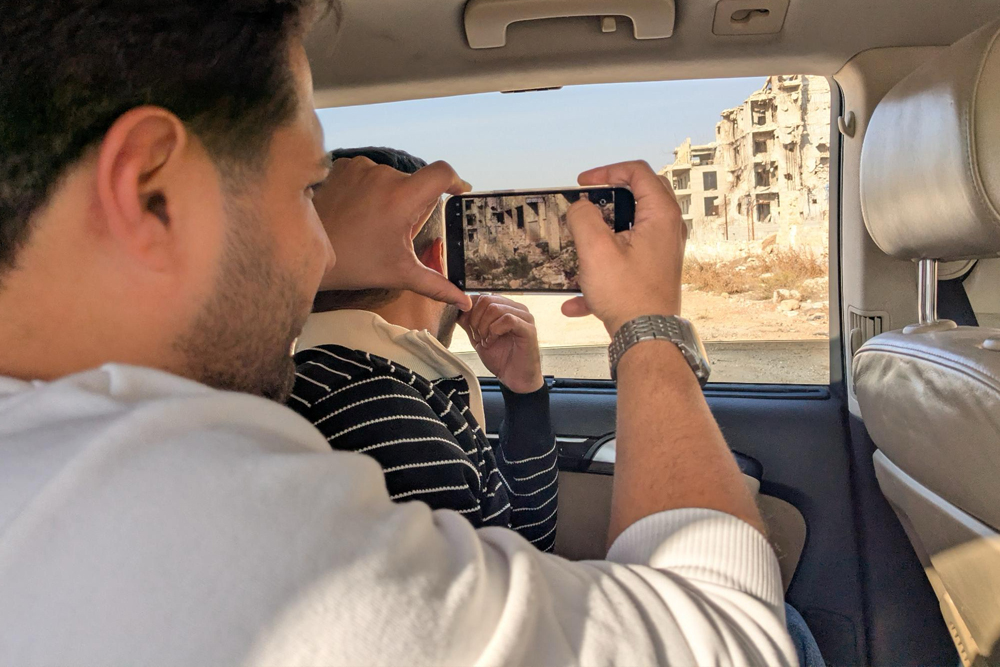
From November 6 to 13, 2025, Alfons and Omar were back in Aleppo, Syria. They were able to build new contacts on the ground — including construction companies and experienced project developers — and gather valuable insights into the conditions for reconstruction in Aleppo. This includes:
- Information on how land prices vary by location
- Cost estimates for the structural shell of a residential building and prices for the later interior work
- Insights into sales prices and current rental levels in different districts
- Typical material prices as a benchmark for the RE.CK building block
- Knowledge about setting up on-site production
👉 One thing matters to us in particular: it’s not just about housing. Aleppo needs jobs — and that’s where our system shows its strength. People without a construction background can be trained quickly and take an active role in rebuilding the city.
Another highlight of our trip was an interview with Deutsche Welle, which will be broadcast in December 2025.
Building the Future – Block by Block
Our vision: RE.BUILD with the people and for the people on the ground.

Simple Construction from Rubble
Recycled
Up to 98% recycled construction debris combined with ash, clay, and mud as binding agents (the remaining 2% is water).
Simple
Decentralized, on-site production – ideal for small businesses or relief teams working directly in the field: fast, affordable, and independent.
Circular
Cradle-to-cradle design – suitable for residential buildings up to four stories high. No cement, reinforcement, or mortar required.
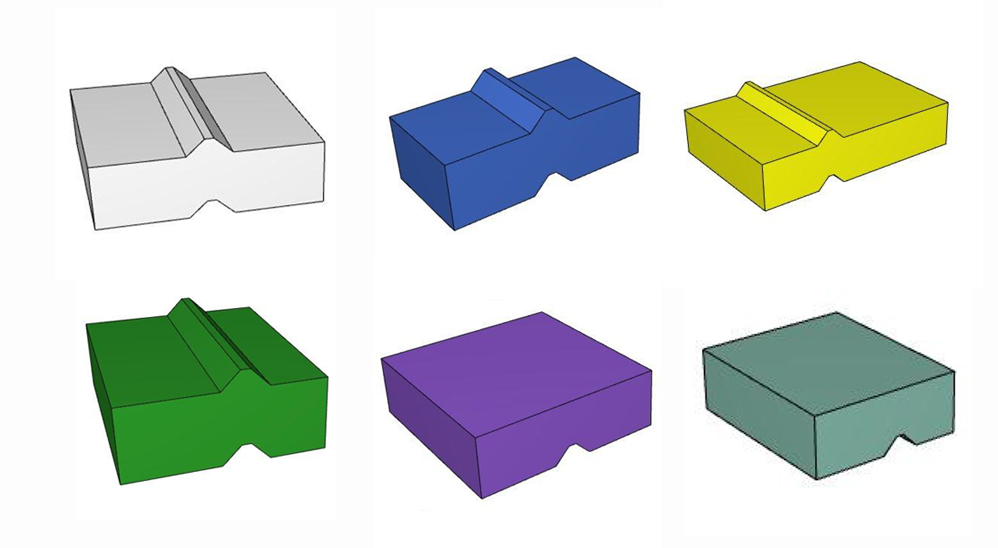
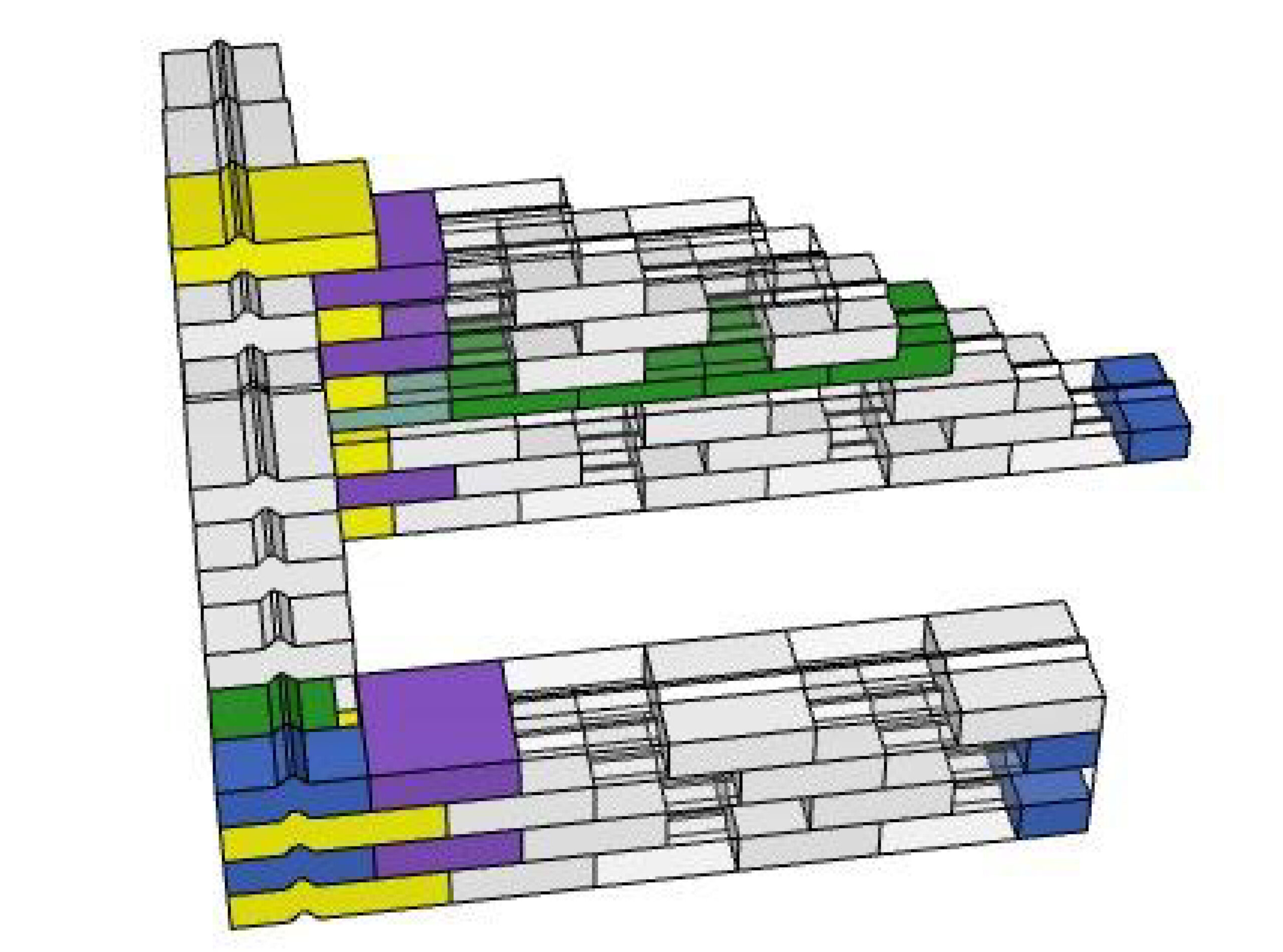
Flexible
Through extensive development, six different RE.CK module types have been designed that can be combined freely.
These modules offer a stable, sustainable, and adaptable solution for housing and infrastructure projects – wherever resources are scarce and quick solutions are needed.
Every Block with Heart
With your support, new housing can emerge where nearly everything has been lost.
The first step is the construction of a four-story residential building.
Floor plans are developed together with local architects and planners.
The buildings are solid, simple, and designed to give people a real home again.
Depending on the situation, the model can be adapted to make the best use of available resources.
Our current focus is on reconstruction in Syria and Gaza – depending on the political situation.
Support our projects with your donation – RE.CK by RE.CK, for people starting over.
Concept & Construction Phases
The modular design allows for maximum flexibility. The neighborhood is built in three stages, and even a single apartment unit can be realized independently. In the second and third phases, the building expands with additional apartments (four per floor) and more stories. Step by step, a four-story residential complex with 16 apartments and a green courtyard as a shared community space takes shape.The open staircase design ensures short paths and safe escape routes from all areas.
Phase 1: 1 Apartment

Phase 2: 4 Apartments

Phase 3: 16 Apartments
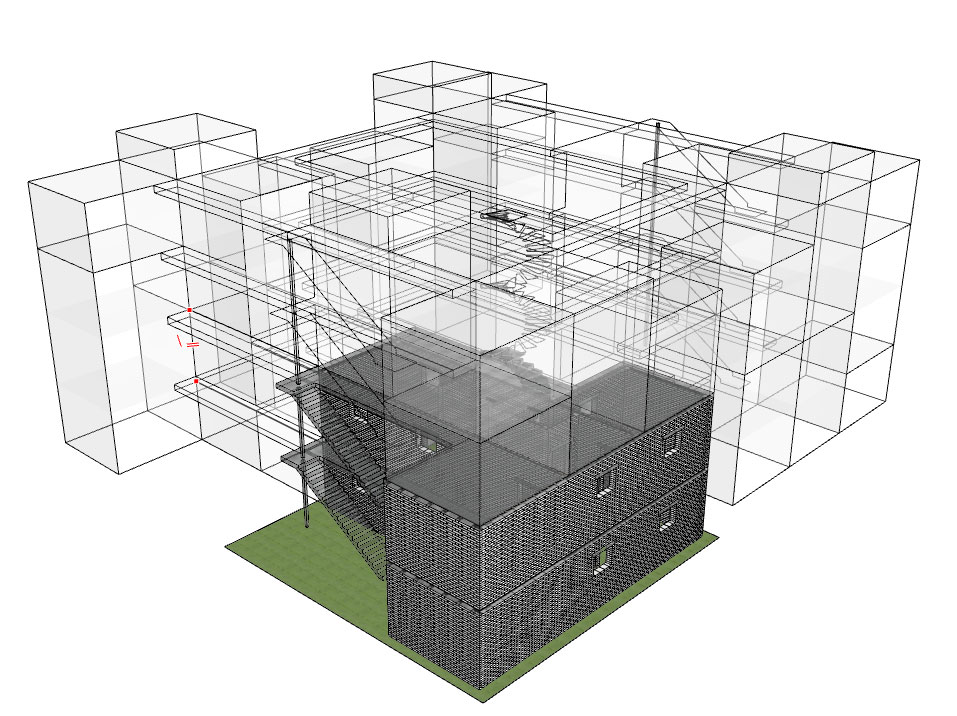
Donations Account:
Robins Places gGmbH
Reference: “RE.BUILD”
IBAN: DE93 5519 0000 0901 2260 19
About
Robins Places gGmbH – formerly Neues Zuhause – was founded in 2015 by Alfons. The idea was simple but important: to give refugees a home. Apartments were rented and sublet to those in need. In the first five years, more than 50 homes were provided. In 2021, the housing projects were handed over to the “PERSPEKTIVE Wohnen Foundation” – and for Alfons and his team, a new chapter began: Robins Places.

Today, the focus is on creating housing in war and crisis regions – built modularly, with simple means and local materials.
To make this vision possible, Alfons developed the RE.CK building block – a system that enables fast, stable, and sustainable construction even under the toughest conditions.
Vision
Robins Places stands for practical building solutions,
human dignity, and the belief that a safe home
is the first step toward a better life.
Team

Alfons
Founder, Managing Director, and inventor of two innovative construction systems – RE.CK and BONO.BLOCK, a modular timber element. As a social and serial entrepreneur, he combines technical expertise with entrepreneurial foresight. Alongside his nonprofit work at Robins Places gGmbH, he co-leads an architecture firm, sets new standards in simple, sustainable, and efficient construction and runs a mobile care service – proving that social responsibility and entrepreneurship go hand in hand.

Sylvia
Serial entrepreneur with a focus on digital strategies. She oversees operations and project management, bringing in her experience as a startup founder and her work with non-profit organizations.
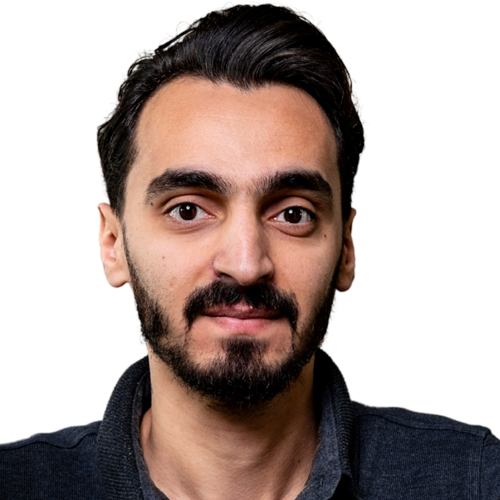
Omar
Draftsman responsible for the technical drawings of the RE.CK and related building projects. Born in Syria, with Arabic as his native language, he is active in local networking initiatives and promotes intercultural exchange.
Networking in Syria
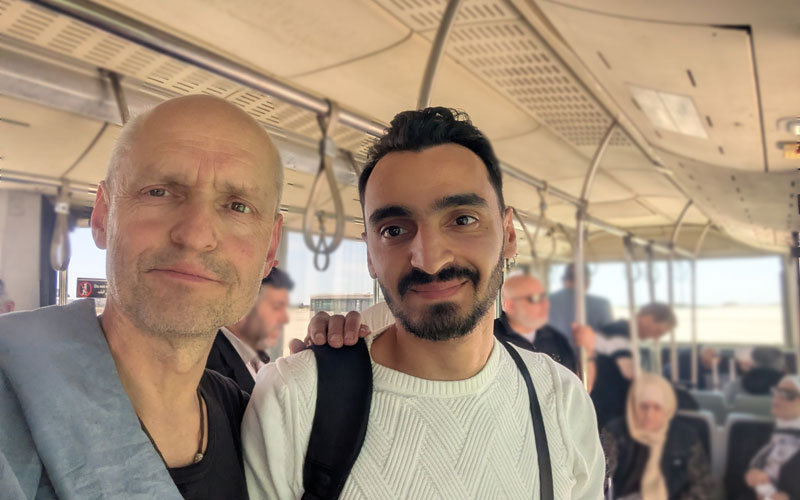
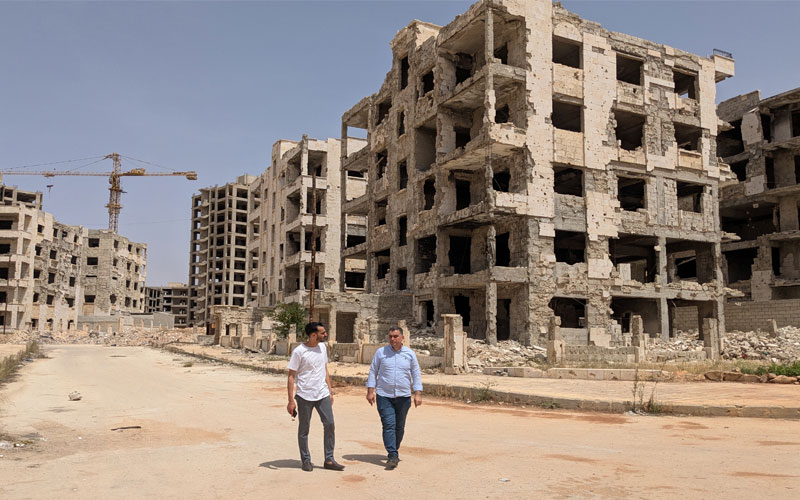
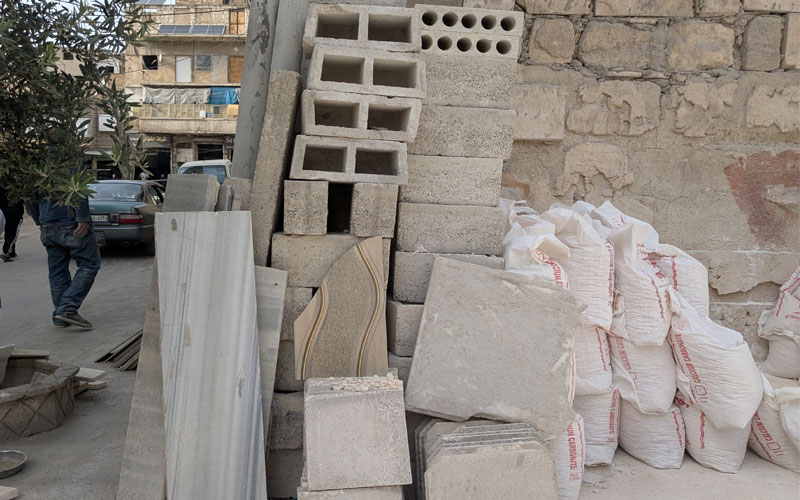
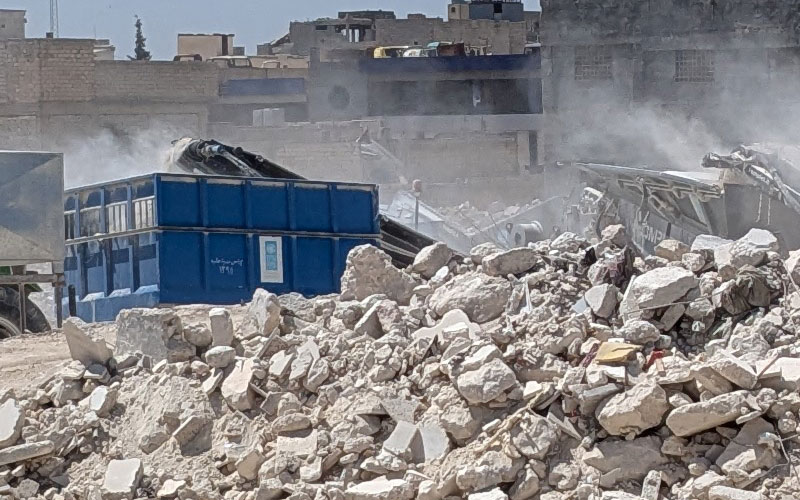
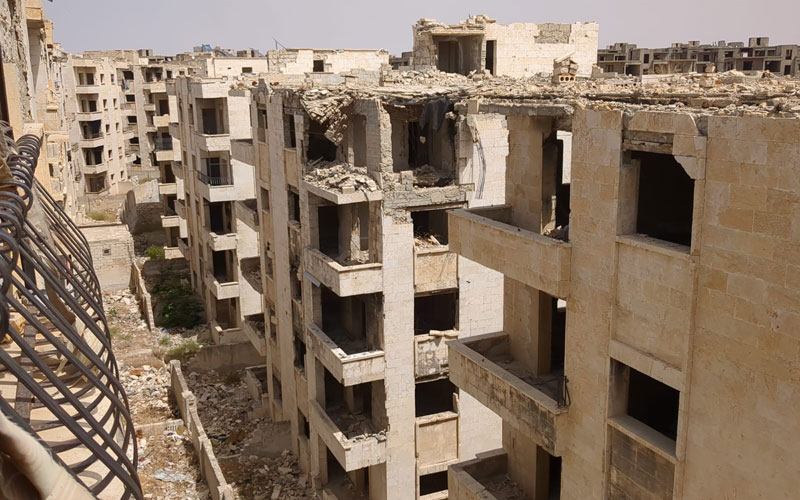
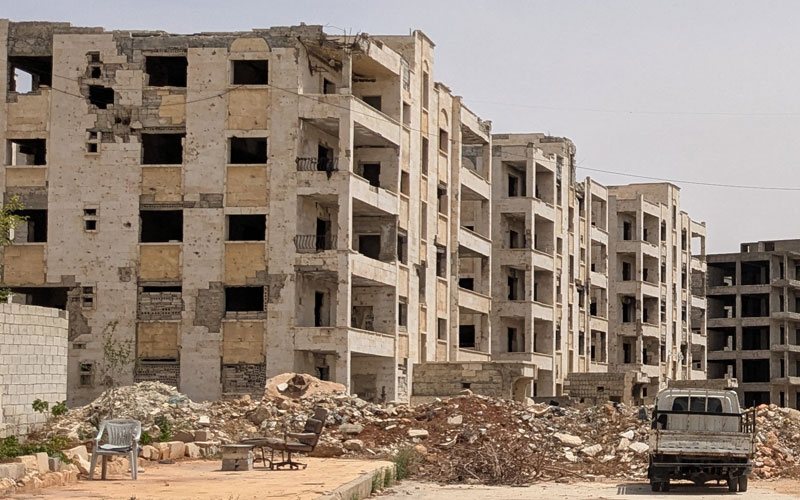
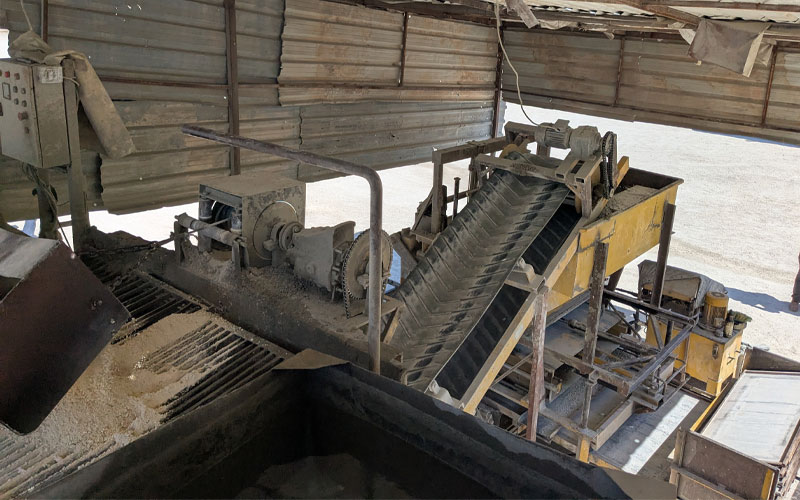
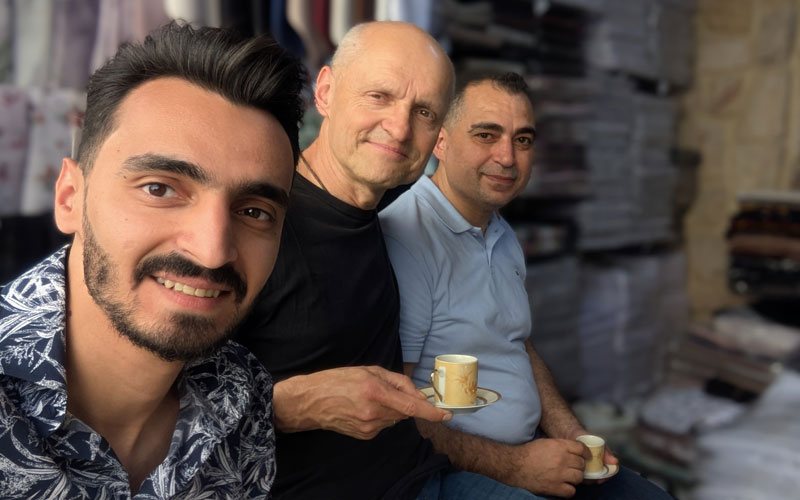
As a civil engineer, Alfons has planned and executed major construction projects for many years – but building in a crisis zone is a different story. It requires courage, improvisation, and creativity, because almost nothing goes according to plan – and that’s where the real challenge lies.
In May 2025, Alfons and Omar traveled to Syria, Omar’s homeland. Omar completed his training as a draftsman at Alfons’ architecture firm. Ten years earlier, he and his family fled Syria – then still a teenager starting a new life in Germany.
Returning to Aleppo was an emotional moment: seeing family and friends again, but also facing the destruction left behind by war. For Alfons, it was a journey full of impressions and conversations – about life, new beginnings, and how building can create hope.
In such situations, the value of the RE.CK building block becomes clear: a system designed to turn recycled rubble into stable, affordable construction elements – a practical approach that helps build a real future, right where people need it most.
Our network partner:
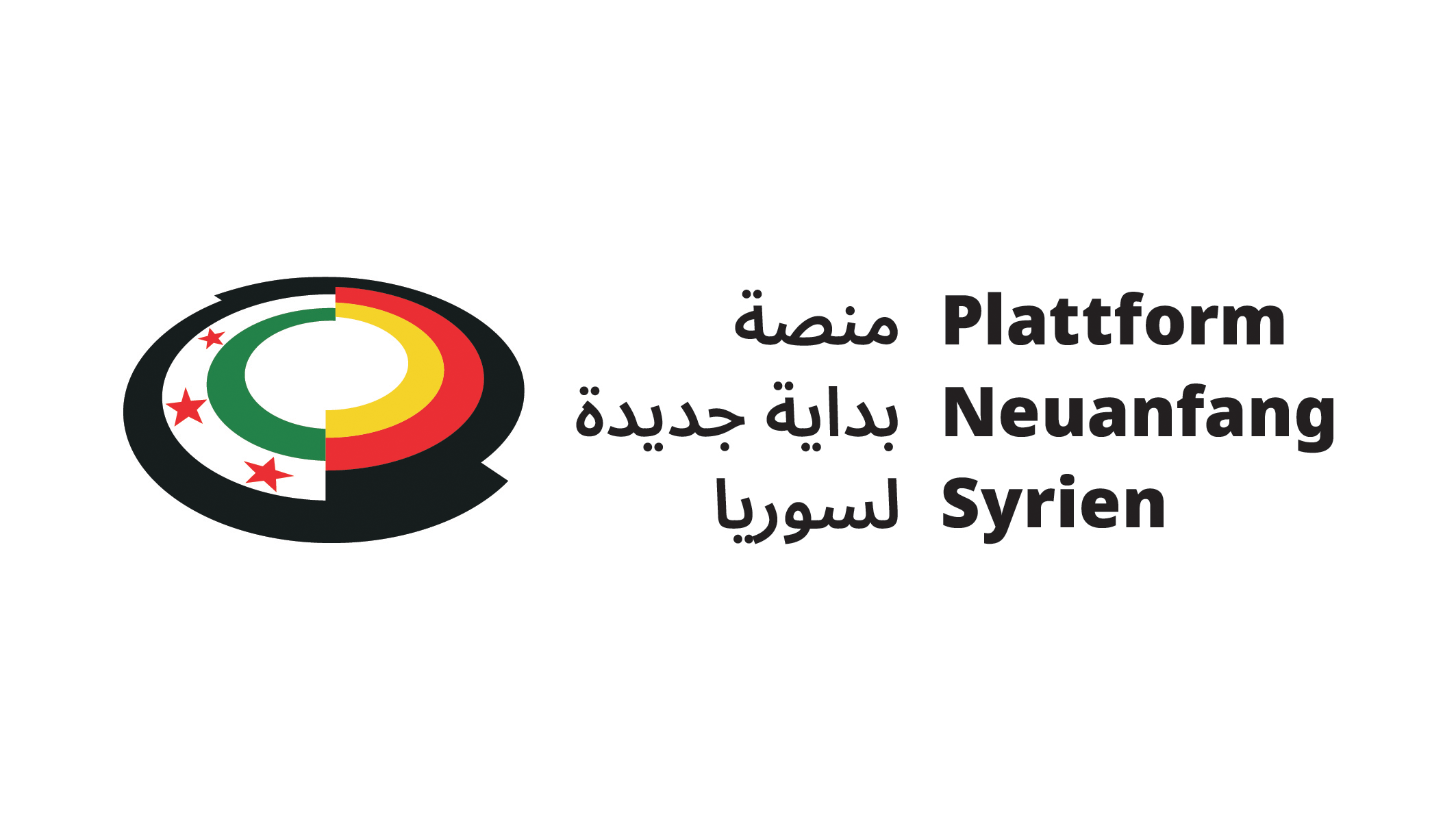
Networking in Gaza
Due to the dire situation in Gaza, initial networking and cooperation initiatives had to be paused in recent months. As soon as conditions allow, the partnership agreement with the MA‘AN Development Center will resume.
MA‘AN is a Palestinian NGO committed to sustainable development, social stability, and the rebuilding of local structures. The planned collaboration combines MA‘AN’s regional expertise with the RE.CK construction system to create fast and sustainable housing locally – as soon as it becomes possible again.
Networking in Ukraine
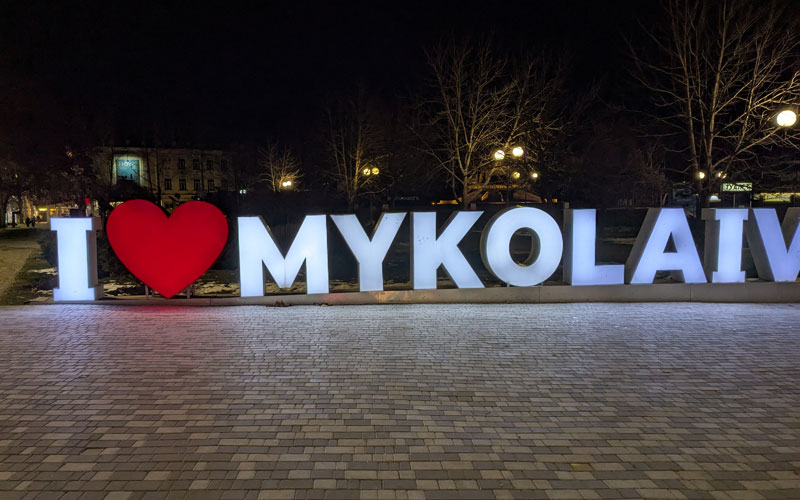
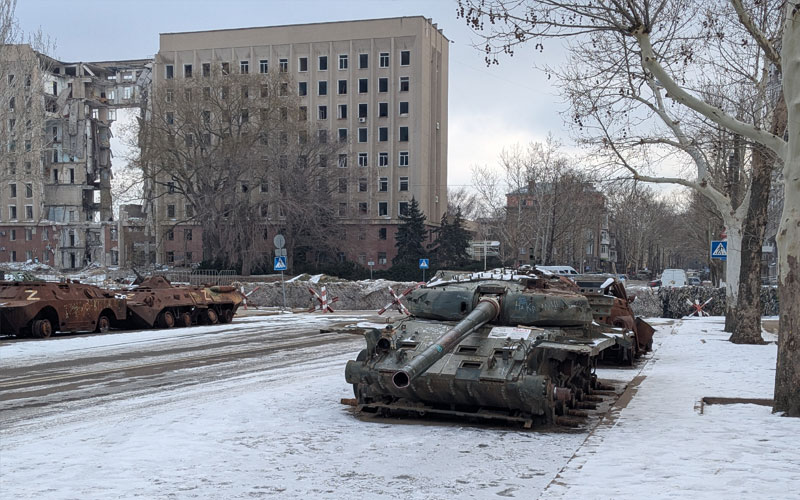
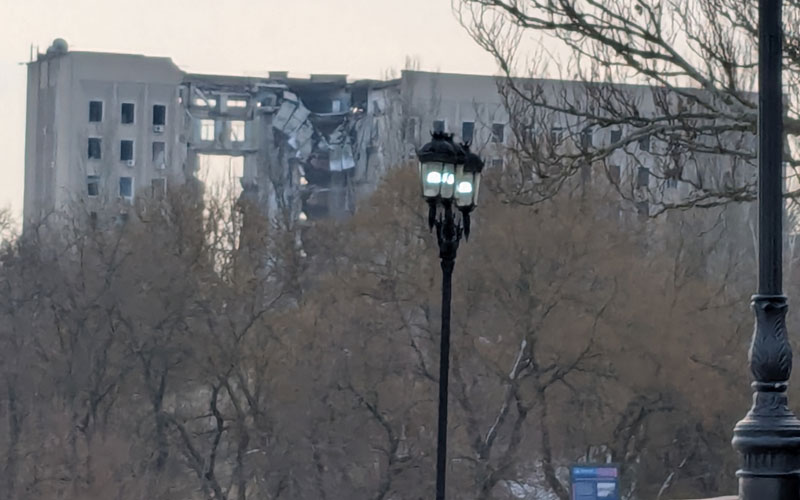
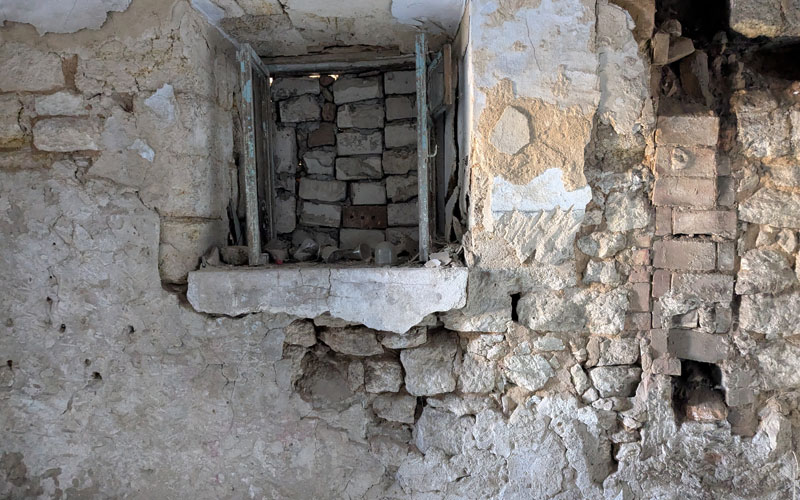
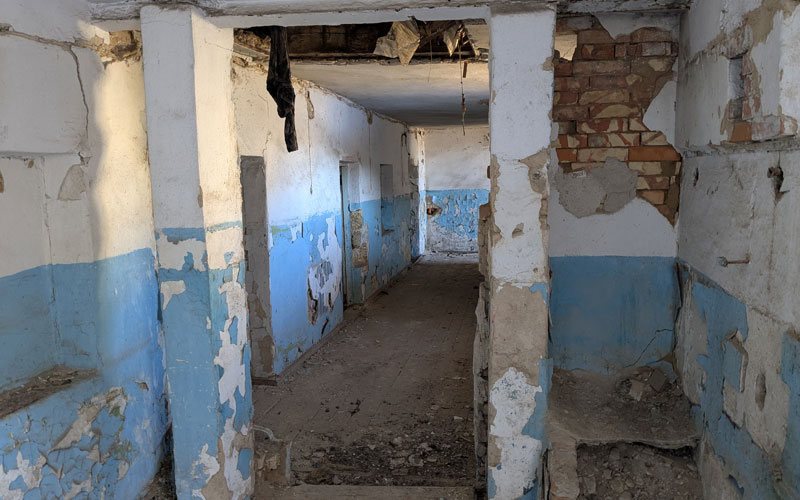
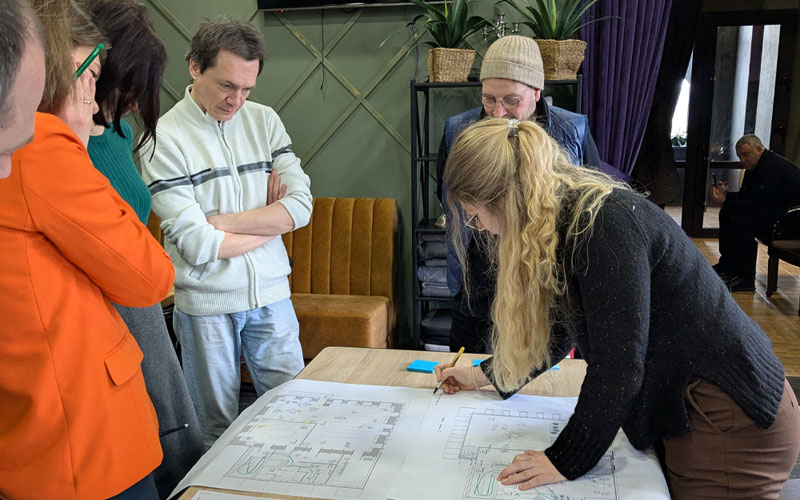
In February 2025, Alfons accepted an invitation from the Mykolaiv Water Hub and traveled to Ukraine.
There, the cradle-to-cradle principle of the RE.CK system attracted great interest, as did its simple, modular design that enables independent reconstruction.
The meetings and discussions on site showed how strongly the idea of sustainable, local construction resonates.
New contacts and ideas emerged from this exchange – connections that continue to grow and strengthen within the network.

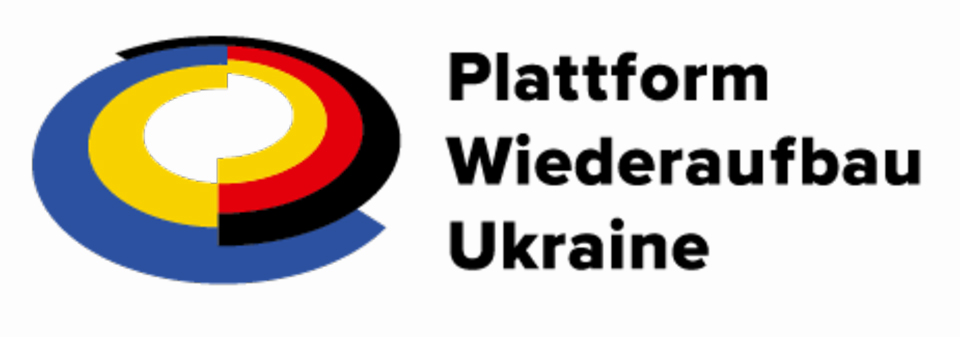
Donation Account:
Robins Places gGmbH
Reference: “RE.BUILD”
IBAN: DE93 5519 0000 0901 2260 19
Thank you!
